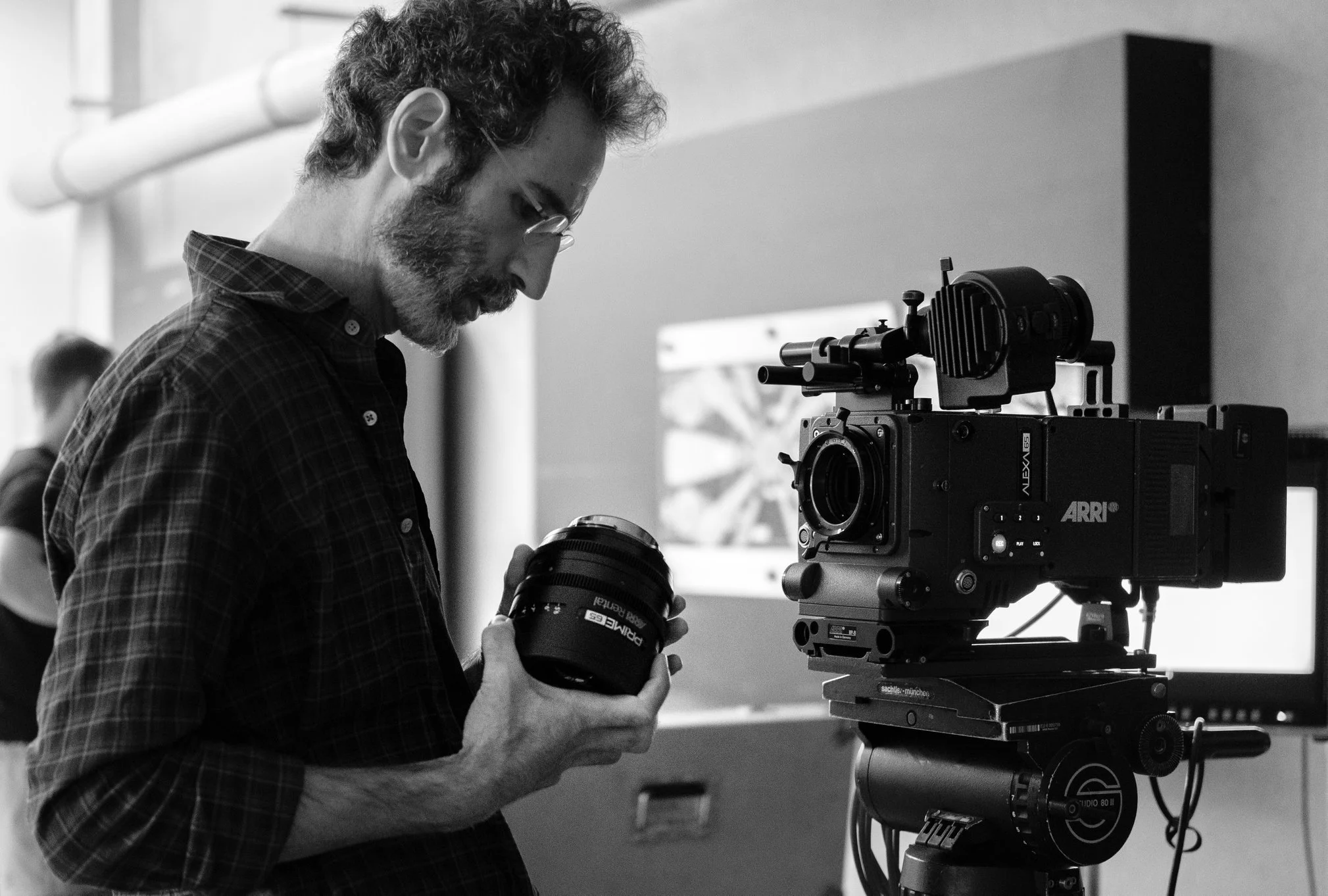About Guy Raz
Three-time Israeli Academy Award winner for Best Cinematography on a Dramatic Television Series, recognized for his outstanding work on Uri & Ella (HOT 2017), On The Spectrum (YES TV 2019), and The Chef (YES TV 2020). Guy recently won the Best Cinematography Award in the main competition at the Jerusalem Film Festival for his work on the documentary film ADA - my mother the architect.
With over a decade of experience in shooting feature films and television dramas, Guy has garnered both critical and popular acclaim for his artistry and technical skill. His approach to cinematography emphasizes storytelling through visual language, carefully crafting each frame to enhance the narrative and emotional impact of the projects he undertakes. Raz's work is marked by a keen attention to detail and a deep understanding of the medium, making him a notable figure in the world of cinematography.
The Chef, a 10-episode drama that explores the journey of an unemployed programmer who becomes a cook, premiered at the Zurich Film Festival, and has been acclaimed for its visual storytelling, described as ‘visually groundbreaking’ and lauded for its innovative approach, which critics have referred to as the show’s ‘secret sauce.’
In addition to The Chef Guy Raz is recognized for his work on On the Spectrum, which received significant praise and earned Guy dedicated articles highlighting his contributions. The series won the Grand Prize at the 2018 FESTIVAL SERIES MANIA in France and the Grand Prize at the SEOUL DRAMA AWARDS, solidifying Guy’s stature in the industry.
Another notable project, Just for Today, aired in mid-2019 on YES TV. This 9-episode drama focuses on ex-prisoners participating in a rehabilitation program and won the Special Jury Prize at FESTIVAL SERIES MANIA 2019. It was also officially selected for the TV Pilots Competition at the CAMERIMAGE FESTIVAL.
Guy has recently wrapped up his work on three new shows: The Chef (season 2), Tito & Rojo, and the highly anticipated Shtisel spin-off titled Kugel, which was filmed entirely in Belgium.
Guy continues to share his expertise through his Master Class titled Cinematography for Directors, which he conducts at Tel-Aviv University and Sam Spiegel Film and Television School in Jerusalem.
From the Press
“Guy Raz is one of the most esteemed cinematographers in Israel for both film and television dramas, and he is also behind the wonderful cinematography of the new series The Chef. We’ll talk about the unique process he undertakes before shooting, his sources of inspiration, the color palette he chooses and how he adapts it to the characters. And much more about production, budget, and why he won’t shoot commercials.”
“A significant part—perhaps the greatest, perhaps the secret sauce—of the power of The Chef lies in the cinematography of Guy Raz, the man who already performed wonders in On the Spectrum and Just for Today.”
“On the Spectrum deserves praise also for an aspect that has somehow been overlooked: its cinematic execution. Specifically, the camera direction, and more concretely, an approach that cinematographer Guy Raz uses far more frequently than is common today in both television and cinema.”
“One of the major changes in Israeli television in recent years is the growing emphasis on cinematic expression. Television now places greater focus on form and no longer relies solely on dialogues. Cinematographer Guy Raz has been a significant contributor to this shift in the series he filmed, including Uri and Ella, On the Spectrum, and The Chef, as well as in films like Rabies, Epilogue and Peaches and Cream.”
“In Peaches and Cream Guy Raz has delivered one of the most stunning works of new Israeli cinema. Tel Aviv on screen feels so alive and breathing. Each frame is more expressionistic than the last, charged with emotion and bursting with color. When the camera moves, the film soars forward; when it’s static, the pulse stops. Even seemingly simple close-ups are in fact world-class, as they turn a film about people into one that, in its crucial moments, takes place on the human face.”




